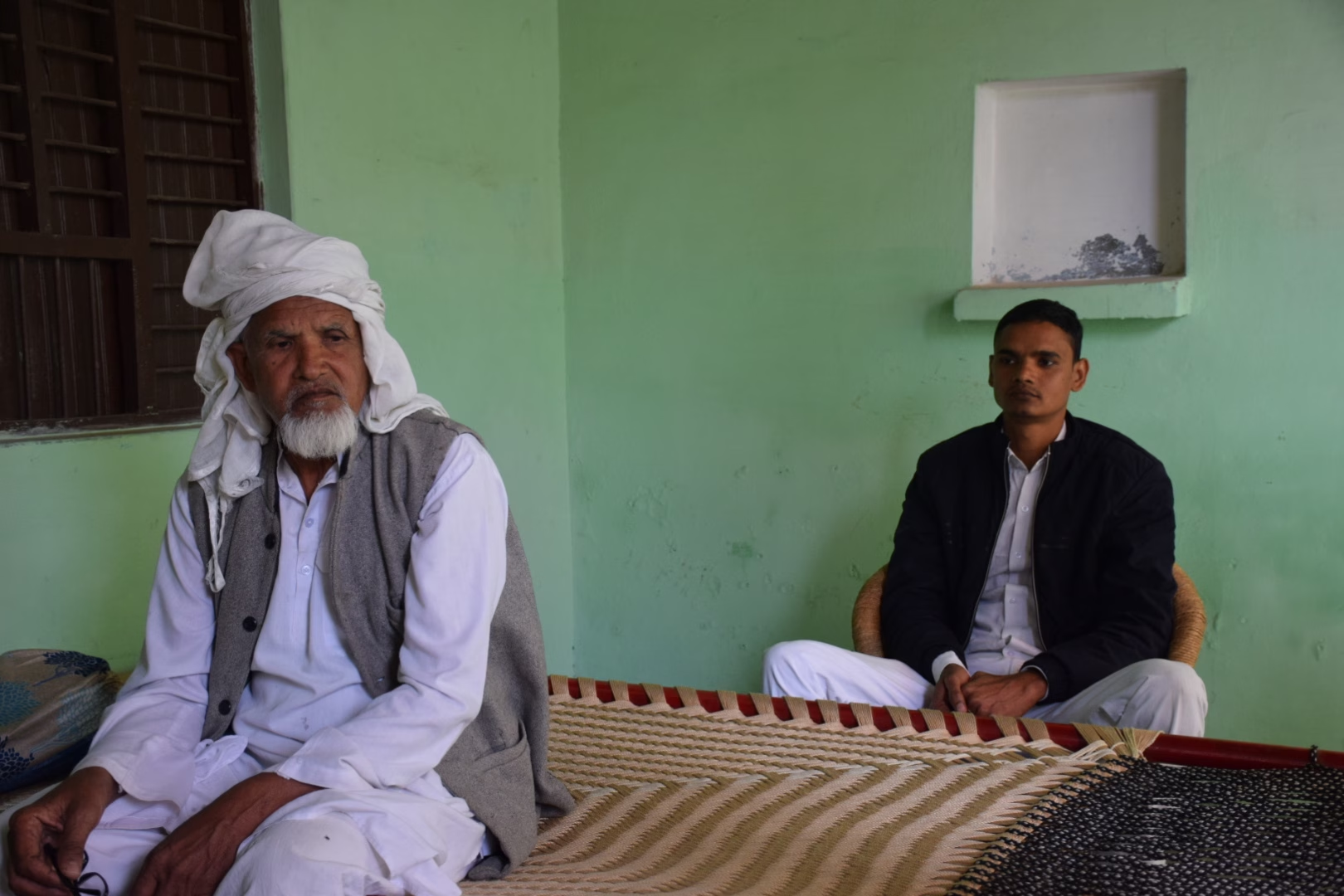“When it’s finally wedding time, we will paint the house,” Mohsin said, leaning on an iron shovel, in a February 2025 conversation with Al Jazeera, referring to the wedding plans of his sister, Aman. However, the wedding date passed without the ceremony taking place.
The preceding year, in 2023, Mohsin had borrowed about $1,440 from the Indian government’s Kisan Credit Card (KCC) scheme, designed to provide accessible, short-term, low-interest credit to farmers. Despite a modest annual interest rate of 4 percent, the KCC has been diverted from its original purpose of modernizing rural credit to serve as a dubious alternative to family income, particularly for agrarian families to afford dowry costs in marriages.
The KCC money Mohsin borrowed from a local branch of a state-run bank was intended for his sister’s dowry. The groom’s family had demanded a Maruti Wagon-R car and significant cash, which forced Mohsin to use the KCC loan for this purpose instead of agricultural needs. The subsequent failure to repay the loan timely has resulted in rising debt and the risk of the loan being classified as a non-performing asset, thus damaging his credit and future borrowing capacity.
Aman, meanwhile, has completed a seven-year course in Islamic theology from Darul Uloom, equivalent to a bachelor’s degree, but remains unmarried as the family searches for another groom suitable to negotiate the inevitable dowry.
In rural Indian weddings, dowry is the norm, with many women killed by their in-laws due to dowry disputes. This cycle of indebtedness may force Mohsin to seek another KCC loan, trapping him in an endless debt spiral due to stringent loan conditions set by the government’s scheme.
The KCC initiative was launched in 1998 to replace unreliable moneylenders with revolving credit lines, but widespread reliance on these loans for non-agricultural expenses has led to a debt crisis among Indian farmers.
Farmers in India face financial burdens that often drive them to seek loans from informal sources at high interest rates, as the state provides insufficient support for personal expenses such as medical emergencies and weddings.
Vijoo Krishnan, a farm leader, noted that farmers are increasingly using KCC loans for healthcare and education, thus entering a “development debt trap” rather than investing in productivity or growth.
In 2023, the state of Maharashtra recorded the highest number of farmer suicides, a trend observed across India due to severe drought, crop loss, and overwhelming debt. Many criticize the lack of structural reforms aimed at making farming profitable and providing farmers with support such as affordable healthcare, quality education, and fair market access.
Experts argue that schemes like the KCC will remain insufficient without deep structural reforms, and suggest that agricultural lending needs to be subsidized and designed with real field conditions in mind.
Loan scams and weak oversight further exacerbate the misuse of KCC loans. Bank officials acknowledge these concerns, yet the KCC continues to be a source of easy, albeit dangerous, credit for Indian farmers such as Mohsin, who contemplate the future of their farming victims of the system’s inadequacies.







